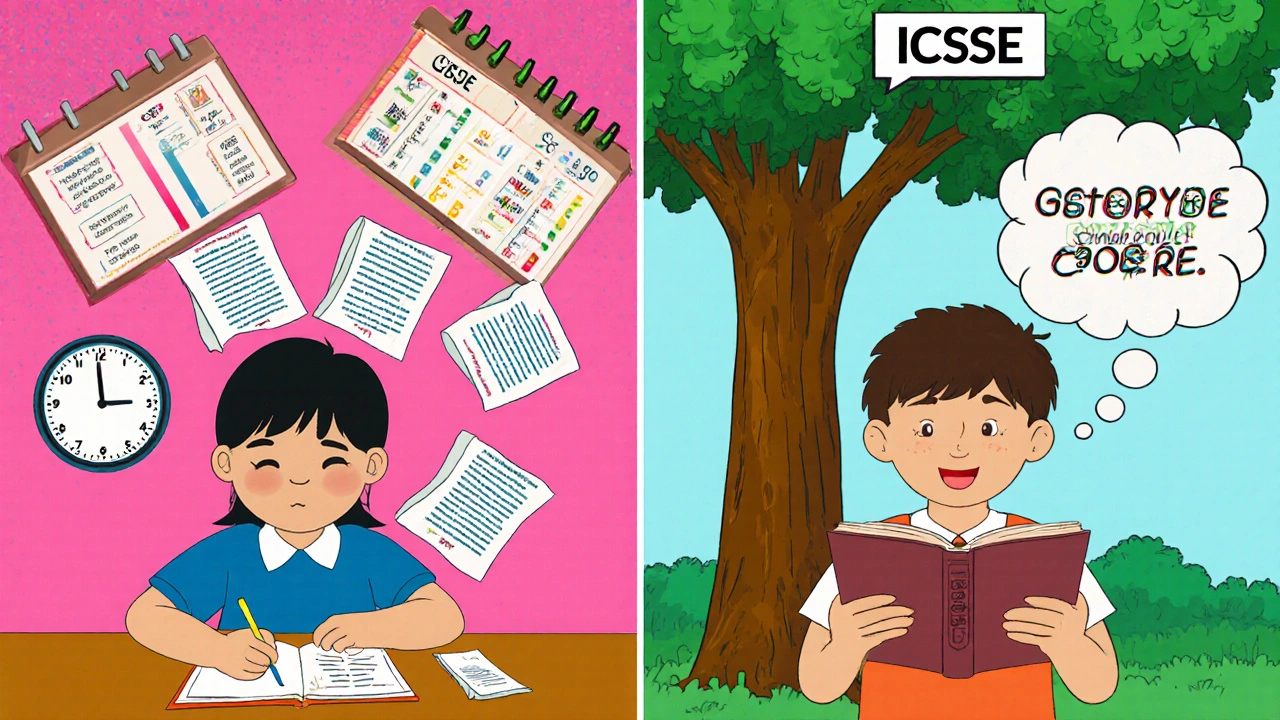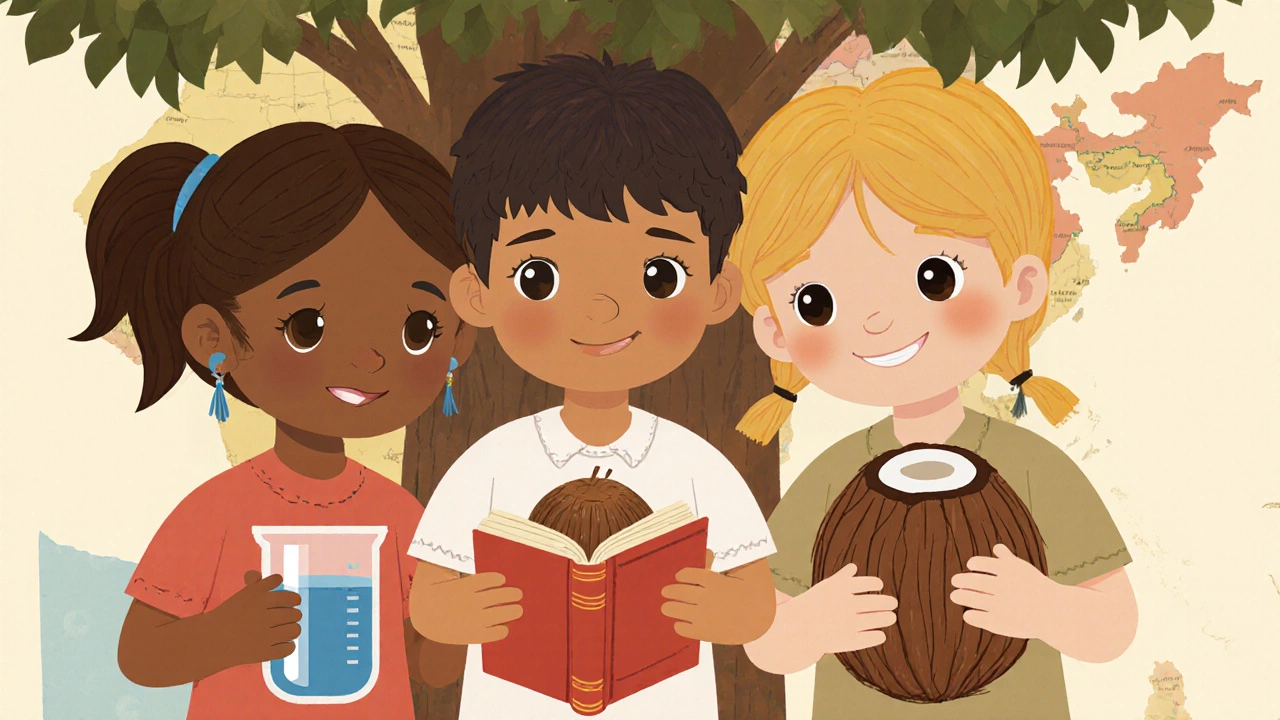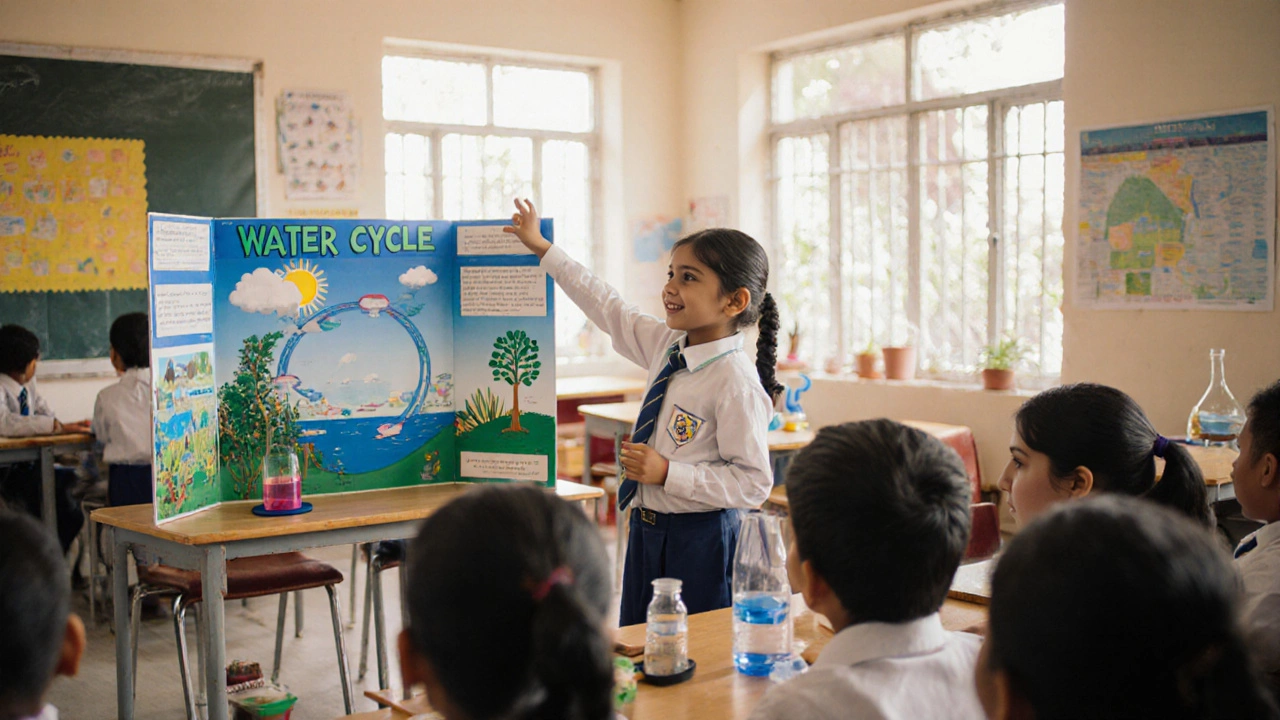Board Recommendation Tool
Find Your Child's Best Education Board
Answer a few questions about your child's learning style, interests, and your family's goals to get a personalized recommendation between CBSE, ICSE, and State Boards.
Recommended Education Board
Choosing the right syllabus for your child isn’t just about textbooks and exams. It’s about how they learn, grow, and understand the world around them. With so many options in India-CBSE, ICSE, IB, and various state boards-it’s easy to feel overwhelmed. But the truth is, there’s no single "best" syllabus for every kid. The right one depends on your child’s learning style, your family’s goals, and where you see them in five years.
What Makes a Syllabus "Best" for Kids?
When we say "best," we’re not talking about rankings or popularity. We’re talking about what actually helps a child thrive. A good syllabus for young learners should:
- Encourage curiosity, not just memorization
- Balance academics with life skills
- Build confidence through achievable challenges
- Prepare for future paths without burning out early
Too many parents pick a syllabus because "everyone else is doing it." But kids aren’t widgets. One child might love the structured, exam-focused rhythm of CBSE. Another might drown in it and bloom under the project-based, language-rich approach of ICSE.
CBSE Syllabus: The Standardized Path
The CBSE is the Central Board of Secondary Education, a national board in India that governs over 20,000 schools and is the most widely followed curriculum in the country. Also known as Central Board of Secondary Education, it was established in 1962 and is known for its uniform structure across states.
CBSE is designed for efficiency. It’s streamlined, predictable, and aligned with national competitive exams like JEE and NEET. That’s why families aiming for engineering or medical careers often choose it.
The syllabus moves quickly. Science and math are introduced early, with clear chapters and direct question patterns. By Class 5, kids are already solving problems in algebra and basic physics. The focus is on understanding concepts through practice, not open-ended exploration.
Pros:
- Clear, consistent structure across India
- Strong emphasis on science and math
- Exam-oriented-helps with competitive test prep
- Widely accepted in private and public colleges
Cons:
- Heavy workload by Class 6
- Less room for creative writing or critical thinking
- English language skills often underdeveloped
- Projects and practical work are optional, not core
CBSE works well for kids who like clear rules, respond to structure, and aim for technical careers. But if your child asks "why?" more than "what?", they might feel boxed in.
ICSE Syllabus: Depth Over Speed
ICSE is the Indian Certificate of Secondary Education, run by the Council for the Indian School Certificate Examinations, known for its comprehensive, literature-heavy, and skill-based approach. Also known as CISCE, it was founded in 1958 and serves over 2,500 schools, mostly private and urban.
ICSE moves slower. It doesn’t rush through topics. Instead, it digs deeper. In Class 3, kids don’t just learn about the water cycle-they write essays on it, do experiments, and present findings. History isn’t memorized dates; it’s stories, maps, and debates.
English is treated like a living language. Reading comprehension, creative writing, and grammar are given equal weight. Science includes lab work as a core requirement, not an add-on. Social studies blend geography, civics, and economics into real-world context.
Pros:
- Strong focus on language and communication
- Encourages critical thinking and analysis
- More project-based learning
- Better preparation for international curricula
Cons:
- Heavier syllabus-more subjects to cover
- Less aligned with JEE/NEET patterns
- Can feel overwhelming for kids who struggle with reading
- Not as widely available in small towns
ICSE suits kids who love to read, ask questions, and express themselves. It’s ideal for families who value creativity, communication, and a well-rounded education over exam speed.
State Board Syllabi: Local, Practical, Varied
Every Indian state has its own board-Maharashtra State Board, Tamil Nadu State Board, Uttar Pradesh Board, and so on. These are often the most affordable and accessible options, especially in rural areas.
State syllabi are usually simpler than CBSE or ICSE. They focus on local context. A child in Kerala might learn about coconut farming in science class. A child in Rajasthan might study water conservation in geography.
They’re less exam-focused than CBSE and less literature-heavy than ICSE. The pace is slower, the language is often in the regional tongue until Class 5, and the pressure to perform in national tests is lower.
Pros:
- Lower cost and easier access
- Strong cultural and regional relevance
- Less stress for average learners
- Good foundation for local colleges
Cons:
- Not recognized outside the state
- Science and math content may be outdated
- Limited resources for competitive exams
- English proficiency often lags
State boards are a solid choice for families who prioritize affordability, local identity, and a calm learning environment. But if you’re thinking about moving cities or sending your child abroad later, you’ll need to bridge gaps.

How Do They Compare? A Quick Snapshot
| Feature | CBSE | ICSE | State Board |
|---|---|---|---|
| Primary Focus | Science, Math, Exams | Language, Critical Thinking | Local Context, Basics |
| English Emphasis | Moderate | High | Low to Moderate |
| Science Depth | High | Very High | Basic |
| Project Work | Optional | Required | Minimal |
| Exam Pressure | High | Moderate | Low |
| Best For | Future engineers, doctors | Writers, researchers, global paths | Local careers, low-stress learning |
What Does Research Say?
A 2023 study by the National Council of Educational Research and Training (NCERT) tracked over 12,000 students across CBSE, ICSE, and state boards from Class 3 to Class 8. The findings were clear: students in ICSE schools showed 22% higher scores in reading comprehension and 18% higher in problem-solving tasks. CBSE students scored 15% higher in standardized math tests. State board students showed the strongest connection between classroom learning and real-life application.
But here’s the kicker-the study found that student happiness was highest in schools that balanced structure with creativity. That’s not about the board. It’s about the teacher, the classroom culture, and whether the child feels heard.
What Should You Choose?
Here’s how to decide:
- Look at your child’s natural strengths. Do they love reading and talking? ICSE. Do they solve puzzles and love numbers? CBSE. Do they learn best by doing and seeing? State board might fit.
- Think about the future. Planning for JEE/NEET? CBSE gives you a head start. Thinking about studying abroad? ICSE is more widely recognized. Staying local? State board is fine.
- Check the school. A great ICSE school with passionate teachers beats a poor CBSE school every time. The board is just the framework. The people make the difference.
- Don’t ignore the child’s voice. Ask them: "What do you like about school?" If they say "nothing," no syllabus will fix that.
There’s no perfect syllabus. But there is a right one-for your child, right now.

What If You Change Your Mind?
Many parents worry they’re locked in. You’re not. Switching boards is possible-especially before Class 6. Some families start with CBSE for its structure, then switch to ICSE in Class 7 when their child’s curiosity grows. Others begin with a state board for affordability and move to CBSE in Class 8 for exam prep.
Just make sure the transition is supported. Talk to the school counselor. Ask for a gap analysis. Most schools have bridging programs.
Final Thought: It’s Not the Syllabus. It’s the Support.
The best syllabus in the world won’t help a child who feels unseen. The worst syllabus can still work if a teacher believes in them.
What matters most isn’t whether they’re learning from CBSE or ICSE. It’s whether they’re learning to think. To ask questions. To feel safe making mistakes. To know that learning isn’t about getting A’s-it’s about understanding the world.
Is CBSE easier than ICSE for young kids?
CBSE feels easier at first because it’s more structured and has fewer subjects. But by Class 5, the pace picks up fast, and the pressure to perform in exams increases. ICSE moves slower but covers more ground in reading, writing, and thinking. So it’s not about ease-it’s about what kind of challenge your child needs.
Can a child switch from CBSE to ICSE in Class 5?
Yes, many schools allow transfers between boards before Class 6. But there’s a catch: ICSE has more subjects and deeper content. Your child might need extra help catching up in English, history, and science. Talk to the new school-they often offer bridging classes.
Does ICSE help with studying abroad?
Yes. ICSE is recognized by universities in the UK, Canada, Australia, and the US because it emphasizes critical thinking and English fluency. CBSE is also accepted, but ICSE students often have stronger writing and analytical skills, which matter in international applications.
Are state board syllabi good enough for competitive exams?
State board syllabi are usually not enough on their own for JEE or NEET. The content is lighter, and the exam patterns don’t match. But many students from state boards succeed by joining coaching classes after Class 8. It’s harder, but not impossible.
What’s the best syllabus for a child who hates exams?
If your child feels anxious around tests, ICSE or a progressive state board might be better. ICSE includes continuous assessment through projects and presentations, not just final exams. Some private schools following ICSE even reduce exam weightage. Focus on schools that value learning over ranking.
Next Steps
Don’t just pick a syllabus because it’s popular. Visit three schools. Talk to teachers. Watch how kids behave in class. Ask your child what they enjoy most about school. Then decide-not based on what others are doing, but on what your child needs to grow.

